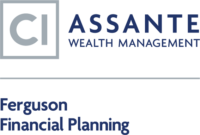Simple Financial Steps to Secure Your 2025 Goals
The start of a new year is a perfect opportunity to take stock of your finances and set the foundation for a prosperous future. While financial planning might seem overwhelming, the key to success lies in consistency and small, actionable steps. Here’s how to prepare your finances for 2025 and beyond.
1. Reviewing Financial Goals
Reviewing your financial goals is the first step toward building a clear roadmap for success. Start by asking yourself where you want to be financially in five or ten years. Are your current savings, investments, and spending habits aligned with these aspirations? Reflect on any recent changes in your life, such as a new job, a major purchase, or a family milestone, and assess how these might impact your financial path.
To make the process easier, consider this checklist: Are your savings targets on track? Are you taking full advantage of workplace benefits like RRSP matching or stock options? Finally, does your investment portfolio align with your long-term goals? Regularly reviewing these factors ensures your financial plan stays relevant and effective, regardless of life’s changes.
2. Adjusting for New Income and Benefits
Did you receive a raise, promotion, or additional income from a side hustle last year? These changes are an excellent opportunity to reassess your financial strategy. Instead of absorbing the extra income into everyday expenses, allocate a portion toward long-term goals like debt repayment or savings. Revisit your insurance policies to ensure your coverage matches your current needs, and explore new tax deductions or credits that may apply to you in 2025. Making these adjustments ensures your growing income has a meaningful impact on your financial health.
3. Savings Strategies That Work Smarter, Not Harder
Savings strategies are essential to building a solid financial foundation. An emergency fund is your first line of defense against unexpected expenses. Ideally, it should cover three to six months of living costs and reflect any recent increases in your income or cost of living.
To maximize your savings, prioritize short-term goals with high-interest accounts or GICs and focus on TFSAs or RRSPs for long-term objectives. These strategies provide stability and flexibility, ensuring you’re prepared for whatever the year brings.
4. Keeping Investments Balanced Amid Market Changes
Regularly reviewing your investment portfolio is crucial for maintaining a balance that aligns with your financial goals. Market conditions change, and so should your portfolio. Over time, gains in specific assets can cause your portfolio to drift from its original allocation. For example, a $10,000 portfolio with a 60% stock and 40% bond allocation in 2020 may now be overweight in stocks due to market growth. Rebalancing ensures your investments remain aligned with your risk tolerance and objectives.
5. Leveraging Tax-Advantaged Accounts
In addition to balancing your investments, tax-advantaged accounts like TFSAs and RRSPs can supercharge your financial strategy. TFSAs allow your contributions to grow tax-free, with withdrawals having no impact on taxable income—making them perfect for mid-term goals. RRSPs, on the other hand, reduce your taxable income today and allow your funds to grow tax-deferred. For instance, contributing $10,000 to an RRSP at a 30% tax rate saves you $3,000 in taxes immediately, which you can reinvest for further growth.
6. Ensuring Security Through Insurance and Estate Planning
Protecting your family’s financial future through insurance and estate planning is another essential aspect of a comprehensive strategy. Life insurance safeguards your loved ones in the event of the unexpected, while critical illness and disability insurance provide income protection.
Estate planning ensures your wealth is distributed according to your wishes while minimizing taxes. Regularly updating your will, beneficiary designations, and exploring trusts for larger estates are proactive steps to secure your legacy. Without proper planning, a significant portion of your estate may go to taxes instead of your heirs, which is easily avoidable with the right guidance.
Financial planning doesn’t have to be complicated, but it does require action. Start by reviewing your goals, optimizing your investments, and taking advantage of tax-saving opportunities.
Take 30 minutes this week to focus on one financial area—whether it’s boosting your TFSA contributions, updating your estate plan, or rebalancing your portfolio. Your future self will thank you.
We are here to help you meet your investment goals and we welcome your questions. We work with business professionals, executives, and families to grow and protect their wealth using our Wealth Plan formula. To discuss our approach and if it is the right fit for you, we invite you to schedule a no-obligation discovery consultation.

